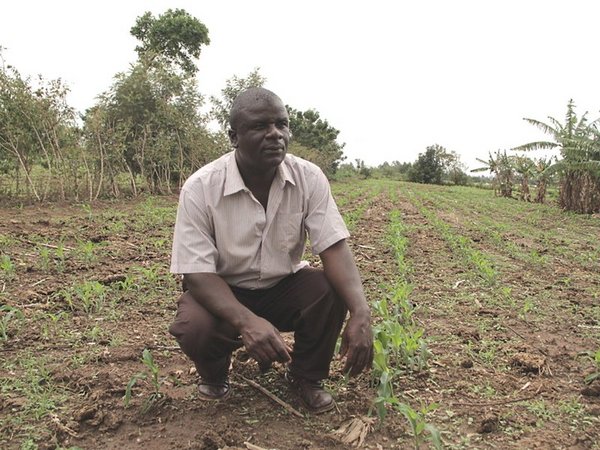 Read this article in French
Read this article in French- Share this article
- Subscribe to our newsletter
Smart design of land tenure is important for Africa
In view of the threatening consequences of climate change in Africa, such as crop failures, famines, or even violent conflicts, local governments should rethink the legal structure of land tenure: If they encourage the "sharecropping" system, they might increase the resilience of agricultural production. This recommendation is made in a study of the Berlin-based climate research institute MCC (Mercator Research Institute on Global Commons and Climate Change, Berlin, Germany), relying on empirical data from eleven countries. The study was published in the renowned journal Ecological Economics in January 2020.
In sharecropping, tenants do not leave a fixed amount of money to the landowners, but a fixed share of the harvest, usually 50 per cent. "Since these are not fixed costs, this system makes farmers more robust against crop failures", explains Matthias Kalkuhl, coordinator of the study and head of the MCC working group Economic Growth and Human Development. "According to our calculations, this can make African agriculture more efficient and thus increase food security. By comparison, sharecroppers less frequently resort to forms of risk management that tend to reduce yields". Such measures include the omission of fertilisation in order to preserve liquidity, and excessive livestock farming as a precaution against crop failures.
The study is based on 9,600 farms in eleven African countries - weather data included
To provide statistical evidence, the authors used an extraordinary structural survey from the period 2002 to 2005. In an elaborate procedure, approximately 9,600 typical farms in eleven African countries were identified at that time and questioned about their general conditions and agricultural methods.
The study also included historical weather data at these locations. "The heterogeneity in climate conditions is larger than ever studied before in this context", emphasises MCC researcher Matthias Kalkuhl. "We find that low levels of precipitation increase the prevalence of sharecropping. Climate change will change precipitation values. This is why this issue is becoming a political priority".
(MCC/wi)
Reference of the cited article:
Kalkuhl, M., Schwerhoff, G., Waha, K., 2020, Land Tenure, Climate and Risk Management, Ecological Economics





Add a comment
Be the First to Comment